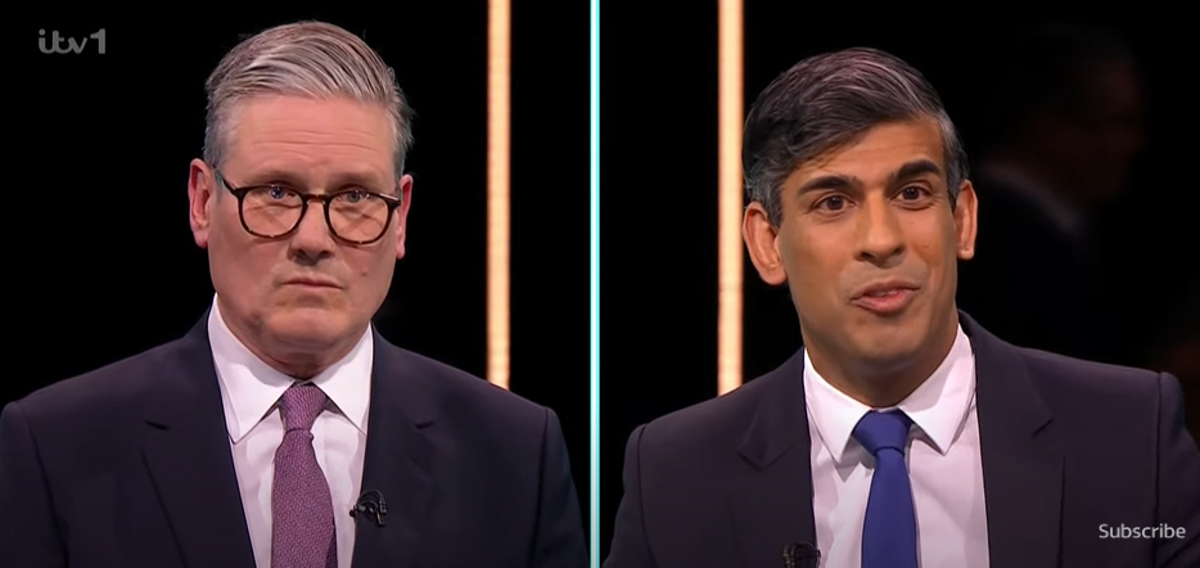OPINION - The Standard View: No knock out blows, but Rishi Sunak lands punches in election debate

Dubious statistics, prepared lines and a whole lot of talking over one another — last night’s ITV election debate was not exactly commensurate with the Lincoln-Douglas debates of 1858, or even the Cameron/Clegg/Brown encounters of 2010.
The Tories will be pleased that their £2,000 tax hike attack landed, with Sir Keir Starmer oddly slow in his rebuttal. Meanwhile, Labour will be content that no major clangers were dropped and their man won in the empathy stakes. To that end, one poll gave Sunak a narrow lead, another to Sir Keir.
Perhaps the real loser was the debate structure itself. Clearly, 45 seconds is insufficient to answer even the most basic of questions, let alone matters of public finance, war and climate change. Such restrictions allowed both candidates to evade scrutiny. A forensic Andrew Neil-esque 30-minute grilling it was not. Given the state of the polls, the Prime Minister needed a knock-out blow and such an eventuality was always unlikely.
But Sunak’s punchy performance has at least given his MPs and supporters something to hold on to, in a campaign where the wheels were threatening to come off.
The cyber threat
In what was euphemistically described as a “major IT incident”, hospitals across London were forced to declare a critical incident following a ransomware cyber attack, which led to the widespread cancellation of operations and blood transfusions. Experts have today pointed blame at a Russian group of cyber criminals, known as Qilin, which was behind the attack that devastated King’s College Hospital, Guy’s and St Thomas and primary care services across the capital. The impact is likely to last for weeks.
Questions must be raised about the NHS’s cyber defences. Only last month, a ransomware organisation published stolen data from NHS Dumfries and Galloway, which had been subject to a cyber attack in March. It also brings into focus vulnerabilities across the public and private sector. It is not difficult to imagine a scenario in which other critical infrastructure is crippled by foreign actors. When politicians talk about keeping Britain safe, this is the front line.
Imperial’s best in class
How can you tell if someone went to Oxbridge? They will tell you, no matter how tenuous the link in conversation. But Oxford and Cambridge can step aside, as Imperial College London has been ranked as the UK’s top university for the first time.
A league table places Imperial second only to the Massachusetts Institute of Technology (MIT) in the United States. A remarkable and well-deserved achievement.


